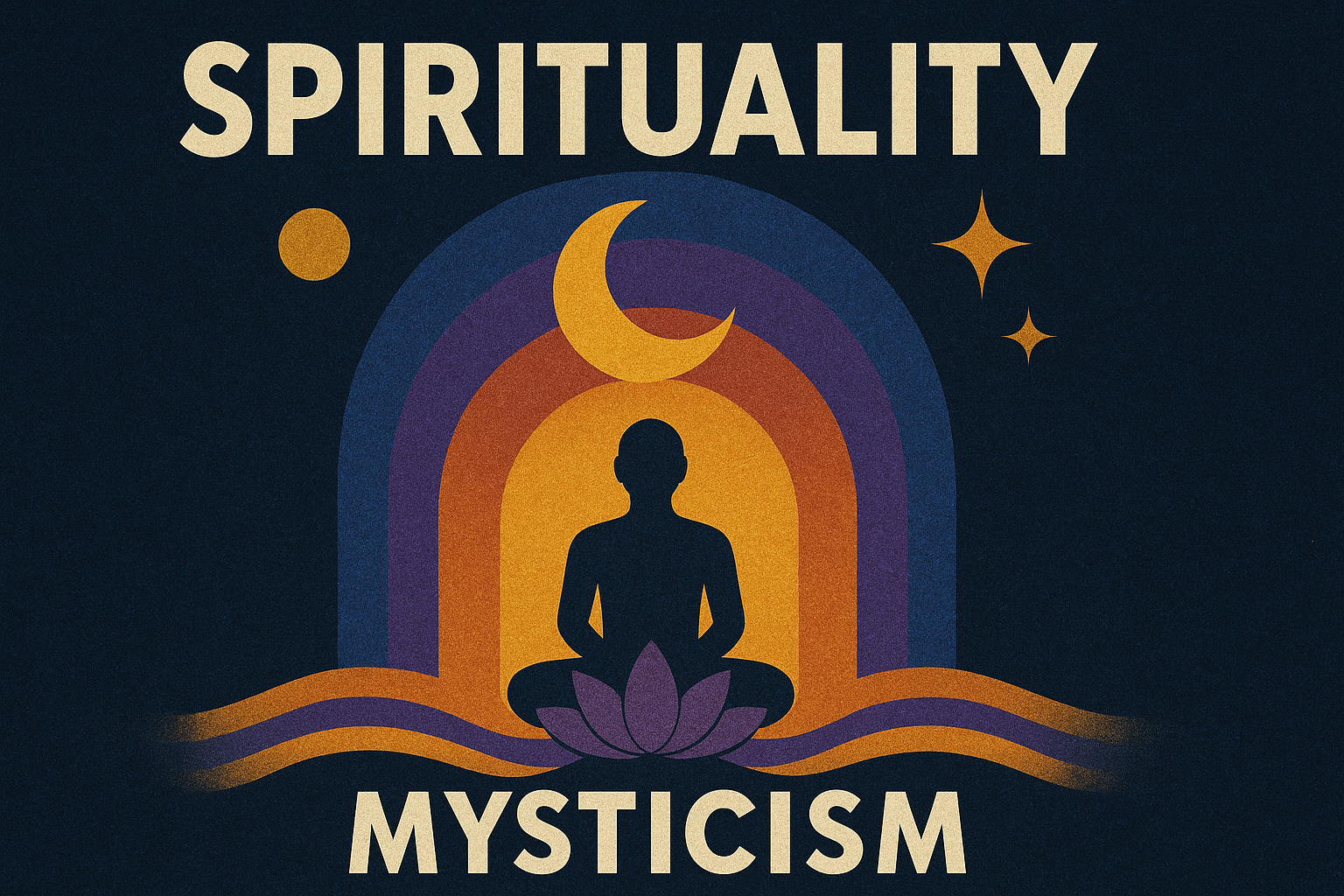I am incredibly reluctant to discuss my thoughts and beliefs relating to metaphysics, specifically the nature of the divine, consciousness, and the sense of meaning and purpose one might derive from their understanding and experience of these perspectives. I think my biggest hang-up is the seeming inability to communicate coherently on these topics.
I unreservedly will call myself a mystic, because the essence of mysticism is simply the experience of the divine, without borders. There is no necessity in mysticism to explain anything, simply to promote divine experiences, however you want to define them. I believe most people would benefit greatly from pursuing mystical experiences in their lives.
However, while I don’t claim any hard and fast beliefs about the nature of the divine, I do enjoy playing with and trying on ideas. My grounding in these mental pursuits is always direct experience. Sometimes the beliefs themselves, while not essential, are a helpful on-ramp to the experience.
With all that in mind, I want to develop the confidence to speak on this topic (my tentative beliefs about the divine, not just my experience) without feeling inadequate or defensive or invoking these reactions in others. I think the first step in this endeavor is finding a broad label that encompasses most of the belief systems in this arena, and using that as a launching pad to dip into more specific ideologies.
In my research, I couldn’t find any formal label that fits the bill. They either were too specific (e.g. panpsychism, pandeism), or used unknown or uncommon terms (e.g. immanentism). So, I’m settling on pan-spiritual. Spirituality is the process of seeking and finding meaning, purpose, and a connection to something larger than oneself. As a Greek prefix, pan means “all,” “every,” or “entire.”
Spliced together, pan-spiritual means something along the lines of, “the process of seeking and finding a universal sense of meaning and purpose that is larger than ourselves while at the same time intricately connected to our inner being.” I would also nest pan-spirituality under the topic of mysticism. You can be a mystic without being pan-spiritual, but not vice-versa.

With that extended preface out of the way, what specific form of pan-spirituality do I find compelling at this time? That would be transpersonal panendeism. I will save a full exposition of this for a later post, but here is a brief overview:
- Trans = beyond
- Personal = person/self
- Pan = all
- En = in
- Deism = the Divine (non-interventionist)
Put together, this is a belief that the Divine both permeates the universe while also transcending it, and has attributes that go beyond the boundaries of a unified person. In other words, there are at least 2 main conceptions of God that are both true: a universal substance (maybe consciousness, but not necessarily), and an intelligent presence (maybe with the omni attributes, but not necessarily).
What this means practically for me is a few things:
- The ways to conceptualize the divine are infinite – Since God is transpersonal, the divine can be approached as a he, she, or an it; as a guru, friend, or lover; as a still small voice or the majesty of nature. We are in God and God is in us.
- The experience of the divine is possible in every moment – Everyone and everything is part of the divine fabric. Therefore, experiencing the divine simply involves waking up to this perspective. It can be as fundamental as purposeful breathing or as exotic as an out-of-body experience.
- These experiences ground meaning and purpose – What are some things that the omni-version of God cannot experience? If you are all-powerful, you cannot experience the satisfaction of building skill. If you are all-knowing, you cannot experience the thrill of discovery. If you are all-present, you cannot experience the gift of awakening. By having these experiences, we add to the God-concept.
- There is no need to fear chaos and destruction – It is not on me or even on humanity to save the world or end pain or fill-in-the-blank. I can trust in the structure of the divine tapestry and simply act with presence. I can have confidence that striving for these or other goals is its own reward even if I don’t see objective outcomes.
I will leave you with the first line from the Tao Te Ching:
“The Tao that can be named is not Tao.”
I find this excerpt both beautiful and humbling. It reminds me to always evolve in my understanding of the divine, to learn from the perspectives of others, and to ground all of my spiritual beliefs in personal experience.
Namaste.